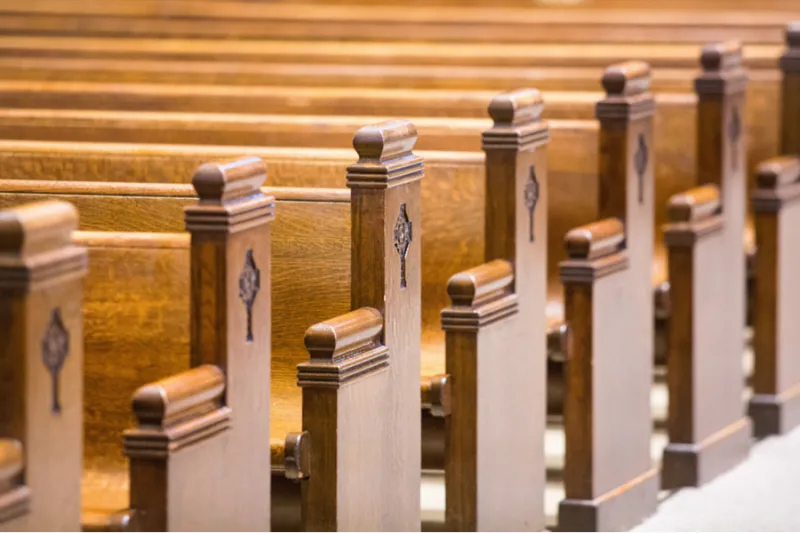
Kansas City, Mo., Oct 20, 2021 / 18:00 pm (CNA).
A Kansas City-area Baptist megachurch has reached a $150,000 settlement with the county over coronavirus restrictions, with the church claiming that the county treated them more harshly than secular institutions when it came to COVID protocols.
Abundant Life Baptist Church, which has locations in Lee’s Summit and Blue Springs, Missouri, filed a lawsuit against Jackson County over a year ago, arguing, as places of worship in other states have, that the county’s coronavirus restrictions treated places of worship more harshly than secular institutions such as retail stores.
Under the terms of the settlement, Jackson County vowed that in exchange for the church dropping the lawsuit, it would ensure that future enforcement measures would not impose stricter requirements on religious organizations than their secular counterparts, the Christian Post reported.
Jackson is one of Missouri’s largest counties by population, and Abundant Life claims that some 4,500 people generally attend their services.
When the church filed the lawsuit in the U.S. District Court for the Western District of Missouri during May 2020, the county’s coronavirus restrictions limited church services to no more than 10 people, while stores, restaurants and bars did not have numerical limitations, but rather percentage-based limits, generally 10-25% of capacity.
The church argued that the rules went against both the First Amendment and the Missouri Constitution.
“If Abundant Life were to engage in retail sales, or served food and liquor as a bar, rather than religious worship at its Lee’s Summit location, Jackson County’s Phase I plan would allow 474 people in the building at a time while meeting or exceeding the CDC’s guidelines,” the lawsuit claims.
Dan Tarwater, one of the six county legislators who approved the settlement with the church, told the Kansas City Star that they believed they were “going to lose” the case unless they approved the settlement. Equal halves of the settlement will be paid by the county and by University Health, formerly known as Truman Medical Centers, which operates the county health department.
The Supreme Court had ruled in late November 2020 that New York state restrictions during the coronavirus pandemic constituted a violation of the First Amendment’s protection of free religious exercise. After the ruling the Bishop of Brooklyn, whose diocese was a plaintiff in the suit, said that religious worship should be considered an essential during the coronavirus pandemic.
The state’s restrictions at the time forbade the attendance of more than 10 people at religious services in state designated “red zones”, and 25 people in “orange zones.”
“Not only is there no evidence that the applicants have contributed to the spread of COVID–19 but there are many other less restrictive rules that could be adopted to minimize the risk to those attending religious services. Among other things, the maximum attendance at a religious service could be tied to the size of the church or synagogue,” the court wrote.
“…even in a pandemic, the Constitution cannot be put away and forgotten. The restrictions at issue here, by effectively barring many from attending religious services, strike at the very heart of the First Amendment’s guarantee of religious liberty,” the decision concluded.
During February 2021 an unsigned order from the U.S. Supreme Court said that the total ban on indoor worship, which was in effect for most of California at the time, is unconstitutional. At most, the state may limit indoor capacity to 25% of normal, the court said, citing its November ruling in the Brooklyn case.
The Washington D.C. archdiocese appealed to a district judge in late 2020 over rules that limited houses of worship to 25% capacity, up to a maximum of 250 people inside, regardless of their official capacity. This included the Basilica of the National Shrine of the Immaculate Conception, the largest church in North America, which has a total capacity of around 6,000 people for its upper church.
A subsequent March 2021 court order allowed houses of worship in D.C. to admit as many people inside as they can, in line with other public health regulations such as social-distancing.
In April 2021, the Supreme Court ruled that California’s coronavirus restrictions on home-based religious gatherings like Bible studies, worship and prayer meetings were more strict than the constitution allows. Citing an appeals court decision in a different case, the unsigned majority’s court order said the state cannot “assume the worst when people go to worship but assume the best when people go to work.”
The court majority found that comparable secular activities treated “more favorably than at-home religious exercise” under California rules included private suites at sporting events and concerts as well as indoor restaurant dining, where more than three households were allowed to gather.
If you value the news and views Catholic World Report provides, please consider donating to support our efforts. Your contribution will help us continue to make CWR available to all readers worldwide for free, without a subscription. Thank you for your generosity!
Click here for more information on donating to CWR. Click here to sign up for our newsletter.




Leave a Reply